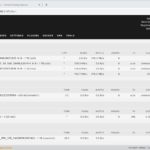Products such as Zyxel’s excellent and extremely affordable ($179) XGS1210-12 are changing the high-bandwidth networking equation for the home and small business users. This transitional (it has gigabit as well) beauty is even managed, i.e., has a Web-based configuration interface and advanced routing features. Sweet.
Design and Features
The Zyxel XGS1210-12 is a desktop unit featuring eight 10/100/1000 (1Gb) ports, two RJ-45 100/1000/2500 (2.5GbE or “multi-gig”), and two SFP+ 10Gb ports. It’s rated for a switching capacity of 66 Gbps, and forwarding rate of 49 Mbps, which is pretty fair for the price point. The switch is a solidly-constructed, medium silver-hued box, measuring 9.84-inches wide, 4.10-inches deep, 1.06-inches tall, and weighing just over 1.5 pounds.
Zyxel has aimed the XGS1210-12 at SOHO or SMB workgroups still using lots of legacy PCs and laptops and only a couple state-of-the-art 2.5GbE/10GbE NAS boxes or workstations. Put another way, “get the data off the server fast”, then shuffle as needs be to the slower destinations. It’s nigh on perfect for the task.
Though I might’ve wished for true step-down (capable of handing 2.5/5Gbps) 10GbE 10Base-T ports rather than the 2.5GbE pair, that’s probably not realistic at this price point, and to be honest, 2.5GbE is a lot more common in PCs and you can add it easily and cheaply (around $30) via USB adapters.

While the XGS1010-12 doesn’t target the enterprise, it is managed and has several pro-grade features. These include: a virtual LAN that allows you to separate the attached devices into two separate networks; and link aggregation of up to four of the gigabit ports (MAS SA, DA, and SA+DA) for better performance (if other devices can take advantage), and port mirroring. Zyxel also provides Internet Group Management Protocol snooping to reduce duplication in streams traveling to multiple devices, and per port quality of service (QoS) management.

Note that there’s also a $149 XGS1010-12 model that, while lacking management and the advanced features, divvies up the gigabit ports into four low priority ports, two medium priority, and two high priority ports so you can perform ad hoc QoS simply by what you attach to what. Nice.
Note that Zyxel ships the unit with a quick setup sheet, however, you’ll need to visit the Zyxel Web site for the full users guide. For some of the more advanced features, you’ll likely need it.
Performance
I put the XGS1210-12 through its paces with a variety of gigabit, 2.5GbE, and 10GbE devices, including several PCs, and a QNAP TS-431KX 10GbE NAS box. A number of different tests were performed, but the most representative of maximum throughput was mapping a drive letter to a folder on the QNAP box.

The numbers you see above are on target for 10GbE across a switch in my test setup. I was able to top 910 MBps attaching the QNAP NAS directly to a PC–you’re talking only around 2.5% latency via the switch. Not subjectively noticeable for most users.
The capture below shows the XGS1210-12’s performance with at PC sporting a Realtek RTL8125 2.5GbE port connected to one of the Zyxel’s two 2.5GbE ports.

All in all, there’s nothing to worry about with the XGS1210-12’s performance. And it’s especially well-suite for 2.5GbE. With SFP+ to 10Base-T adapters, you can employ the 10GbE ports for that purpose as well.
Good Stuff!
The XGS1210-12 is exactly what many SOHO and SMB users are looking for: a few faster- than-gigabit ports, so they can leverage their new high-speed networking devices, while maintaining the older standard for the still prevalent gigabit equipment. And do so without breaking the bank. Affordable, fast, with incredible features for the price. What’s’ not to like?
Note that while you should ideally buy a switch that suits your current cabling (10Base-T or SFP+), there are SFP+ to RJ-45/10Base-T adapters available for around $35.










